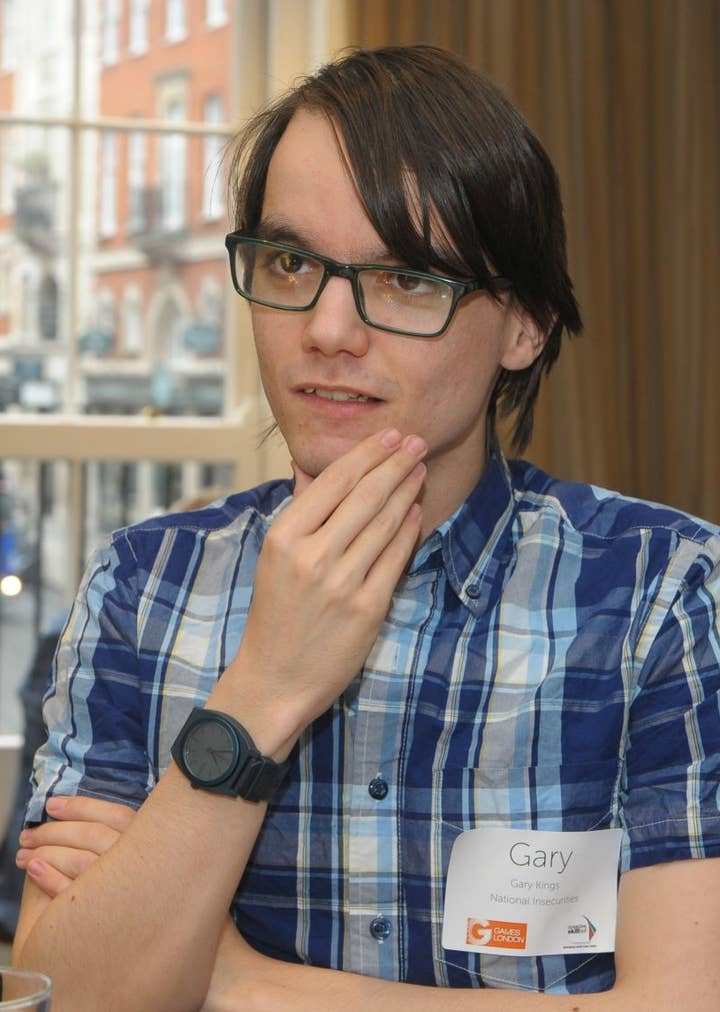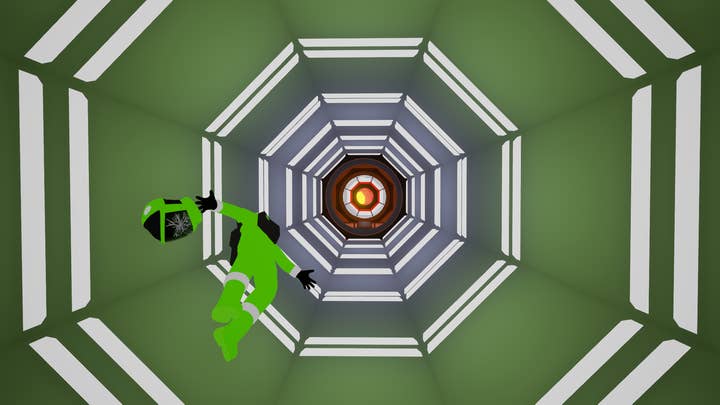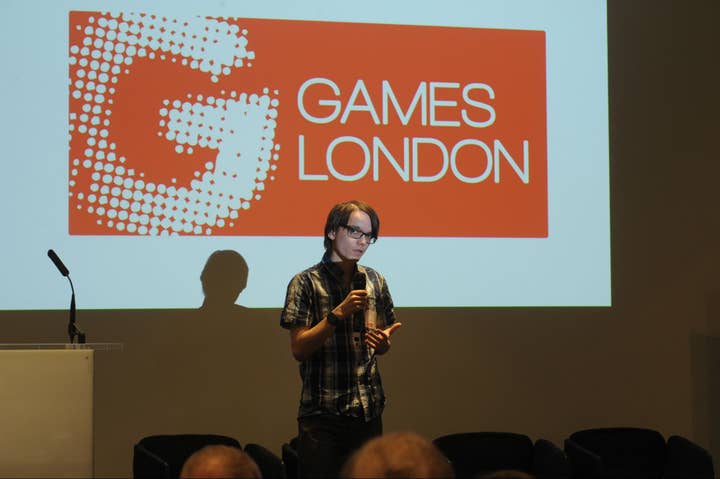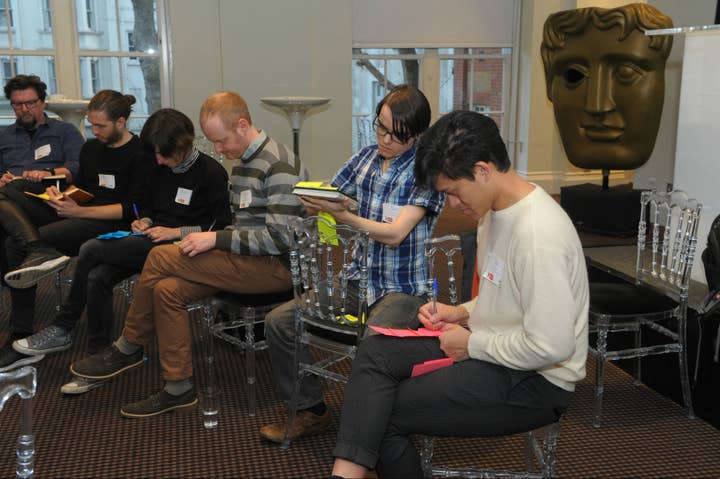The Humble beginnings of National Insecurities
The British start-up reflects on lessons learned about funding projects and how these led to a three-game deal with Humble Bundle
Getting into games development has never been easier, but securing the finance required to transform your dream into a fully-fledged career has never been tougher.
Even with the multitude of funding sources available today - from crowdfunding to venture capital and other investors - making yourself heard over the noise of countless aspiring game makers is a Herculean task. But with perserverance, hard work and the willingness to learn, it is possible.
Case in point: National Insecurities. This small UK start-up made its debut last year with 2000 to 1: A Space Felony, a murder mystery adventure set aboard a spaceship that has lost contact with earth. The game was published as a Humble Original and has set the studio on course for much bigger things... but we're getting ahead of ourselves.

No success in this industry comes overnight. National Insecurities' journey began when the team met in 2012 during their first year in university. They began work on their first title, The Old Gods Are Dead, in late 2014 as part of their third year - a project that would drive them towards establishing a proper studio.
"We're still very much in the early days of becoming an actual company, but as a team we've been together since the third year of university," lead designer Gary Kings tells GamesIndustry.biz. "We formed around this project, The Old Gods Are Dead, which we tried to get financed after university."
At the university's graduation showcase, the team that would become National Insecurities was approached by a Wales-based company who were interested in publishing their first game. While the company wasn't able to fund them, they were willing to help bring the game to market once Kings and his team finished it.
"We were on board with this until we worked on the project a little bit more and realised the game we wanted to make would require funding," he recalls. "That's when we started to look for people who were willing to both fund and publish us.
"We explored all of our options. I'm not super read up on VCs but everything I hear about it reminds me why it's not for us. As for crowdfunding, people I know who went through it say it's one of the most difficult processes, even though the narrative built around it is 'anyone can get funded now'. That's not the case, though - people who know what they're doing can get funded.
"I came out of university thinking I was hot shit and that we were going to do really well... but there was definitely room for improvement"
"We were fresh out of university, so a publisher seemed right for us because we needed someone that can take us through the whole process and show us the ropes."
National Insecurities reached out to various publishers already proven to help new studios blast onto the scene, including Team 17 and Devolver Digital. Both politely declined, with the latter offering advice on how to improve the game. Kings realised the road to succcess was a lot bumpier than he first thought.
"I came out of university thinking I was hot shit and that we were going to do really well," he says. "We had some really cool ideas and people would recognise that very quickly, but there was definitely room for improvement. So having people like Devolver not just say no, but tell us how we could push Old Gods further, that was a huge moment for us."

Undeterred, Kings continued to email "everyone who knew more than me", eventually reaching out to UKIE CEO Dr Jo Twist and asking what else he should try. Twist pointed him in the direction of the Games Finance Market, an event run by the organisers of the London Games Festival. The response came in the nick of time - there were only three days left to apply.
A few months later, National Insecurities were presenting The Old Gods Are Dead to a multitude of publishers and investors, particularly capturing the interest of six companies.
"We explored that avenue [with one publisher], but it took months. That was one of the hardest things to learn: these things take forever."
"One was really, really interested and seemed like a really nice fit for us," Kings says. "So we explored that avenue, but it took months. That was one of the hardest things to learn: these things take forever.
"We went through this path with them for a long time, but then suddenly their circumstances changed quite drastically. We hadn't quite secured a deal with them - it felt like they were delaying things for the last couple of months - and eventually they turned us down. This was about six months after the Finance Market. So we reached out to some of the other companies that had been interested, and some just disappeared and some had changed their minds.
"That seems like it was a very unhelpful thing but I learned so much that I would end up taking forward. My decision to go [to the Finance Market] for a second year was because I knew there were companies that hadn't been before and it was worth the price of entry just to shake the hands of the right people. You only need to meet that one person for any of this to really kick off so I try to put myself wherever I can in order to make that happen."
"You only need to meet that one person for any of this to really kick off so I try to put myself wherever I can in order to make that happen"
For the second Games Finance Market, the organisers put on a bootcamp a couple of months ahead of the event itself in order to better prepare new studios for their meetings. This proved to be invaluable to Kings, who claims he learned "everything that ended up getting us any money at all" and highlighted why his earlier pitches had failed.
"When I had been throwing myself at publishers, a lot of them expected me to know how to pitch and talk specifically to them," he says. "Of course, they get enough people who do hit that mark so they don't need to think otherwise or take the time to educate you.
"I learned how to speak to publishers, not just at this event but anywhere, and that when you meet these people in person, they're just people who want to see cool games made. It's important to meet them face-to-face."

Old Gods was once again pitched to companies at the Finance Market, but the team had also been working on another project - the aforementioned 2000 to 1: A Space Felony. While meetings focused on the former, Kings was keen to see if there was interest in the latter and began probing companies he thought would be a good fit - most notably, Humble Bundle.
"I've been a fan of them since the first Humble Bundle," he says. "They do a lot of great work, and it's a great way to release content with a lot of eyes on you. When I heard they were doing Humble Originals and were funding them, I tried to find out where to apply but at the time I just couldn't.
"When I had been throwing myself at publishers, a lot of them expected me to know how to pitch and talk specifically to them"
"I ended up doing a fake application to the store for a free game I'd made called Disorient on the Murder Express, which never would have been accepted - it's quite good, but it isn't up to the Humble Store's standards.
"I put in the description in all caps something along the lines of: THIS IS NOT A REAL APPLICATION, THIS IS TRYING TO GET YOUR ATTENTION FOR ANOTHER GAME I HAVE IN THE WORKS FOR HUMBLE ORIGINAL. Three days later, I got an email saying the application had been declined, but a day after that I got an email asking: 'so, what's this game then?' The deal, like any of them, took quite a while to get through but from there it all clicked into place."
The studio was given $10,000 to complete development and A Space Felony was released as a Humble Original in July 2017. Just as Kings says a single meeting can change your business, so too can a single deal.
"This ended up becoming our new trajectory," he says. "The Old Gods Are Dead was dead, and we focused on 2001 to 1: A Space Felony instead. It went from being a small free thing we were working on to an actual funded thing that we could put enough effort into and make it our flagship project.
"Tighten up your pitch from the get-go, but also don't expect to succeed - just expect to learn"
"We're actually doing two more with Humble: one will be about the size of 2000 to 1, and the other will be a small side game about the size of Disorient, which is only 20 minutes long. They've funded us $30,000 to complete these. We're currently focusing on the big one right now because the small one... well, we can wing it a little bit with that one.
"They ask us when we think it will be done, give us what we need and we're very open about how well development is going."
When asked about the game's early success, Kings says it's "hard to measure" until A Space Felony is released on Steam - something the studio is currently working towards. By the time the 90 days of exclusivity requested by Humble had expired, this would have put A Space Felony in amongst the Q4 and pre-Christmas releases, with Kings adding: "We knew we'd get crushed on Steam if we released it then."

He continues: "From what I can measure, it's done much better than most Humble Originals - except for Getting Over It with Bennett Foddy because that game has been built to get all the attention in the world and I absolutely love it. I know it's been downloaded at least 10,000 times via Humble, plus 1,700 times via Itch.io - we just wanted it out somewhere after that 90 days, so we just put it on Itch. People seem to really like it on there."
And so begins National Insecurities' journey as a published developer. When looking back over the past few years, Kings is grateful for the lessons learned in how to pitch, how to secure funding, how much to ask for and more. It's tough for new studios to win over the companies they need support from, but National Insecurities is just one example of how it can be done.
"People do seem to expect you to already know these things, and there doesn't seem to be anywhere that can teach you these things - you're just expected to know, and that can encourage you to just wing it and hope you get it right first time," Kings says. "Don't do that. Just be upfront about what you don't know and ask for help.
"It's okay to ask. Allow yourself to not know things and ask people who know more than you - which when you start is almost everybody. Maybe find a mentor if you can, because if you can find someone that knows these things and is willing to help, keep them nearby."
He concludes: "Tighten up your pitch from the get-go, but also don't expect to succeed - just expect to learn. Soak it all in, because you might not find success there but you might find success hopefully down the road from things you learned there."
